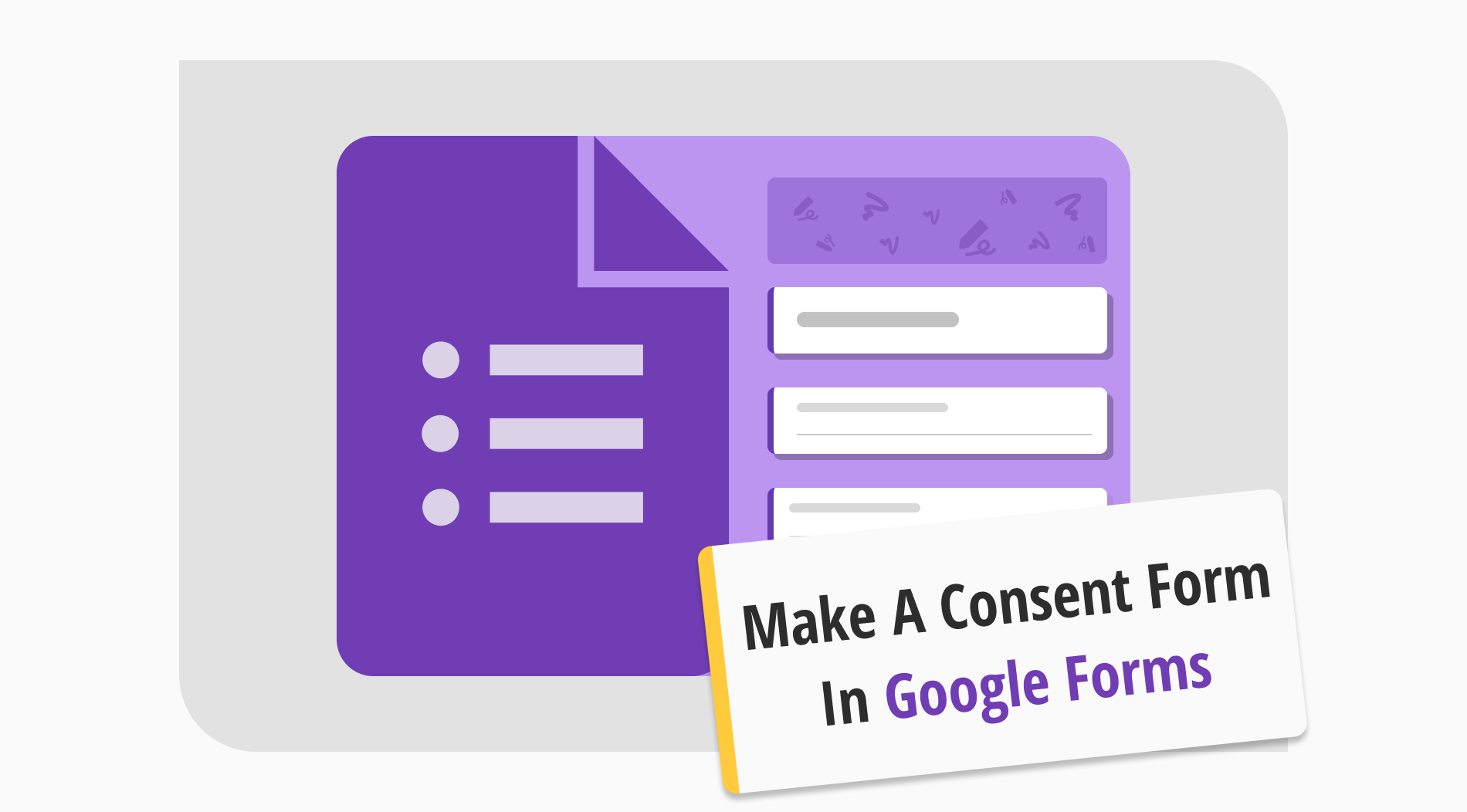

Online consent forms make it easy for business owners to get permission, ensuring they follow the legal rules. The customization features of web forms allow businesses to create consent forms online for various situations. Whether getting into medical records, granting permission for a photo/video project, or obtaining consent for event participation, businesses can create custom consent forms that meet their specific needs.
Building an effective consent form benefits both businesses and clients, making the process smooth and ethical. Our helpful guide will walk you through the step-by-step process of creating an excellent consent form using Google Forms. Also, in this article, you will explore the advantages of crafting consent forms and more.
Yes, you can build consent forms in Google Forms. Google Forms creates an online workspace that allows you to design various types of forms, like customer feedback, employee surveys, or event registration forms. It provides a user-friendly form builder, making it easy to add different form elements, customize questions, and set up required fields.
While Google Forms is a popular and easy tool to make forms, it does have some limits, especially when you want to customize things. It might be confusing to write a consent form correctly, depending on your particular company's requirements. That's why checking out alternative forms-making tools is a good idea.
Consent forms are vital documents in different industries. They explain a particular activity or event's details, conditions, and potential risks. Thanks to consent form examples, you can discover various types of consent, such as medical, photo, or informed consent forms. When users sign a form like this, it means they understand and accept the possible consequences.
Creating consent forms for your business brings many benefits, including legal protection, enhancing customer experience, and presenting a professional image. Below, you can explore more advantages with helpful details:
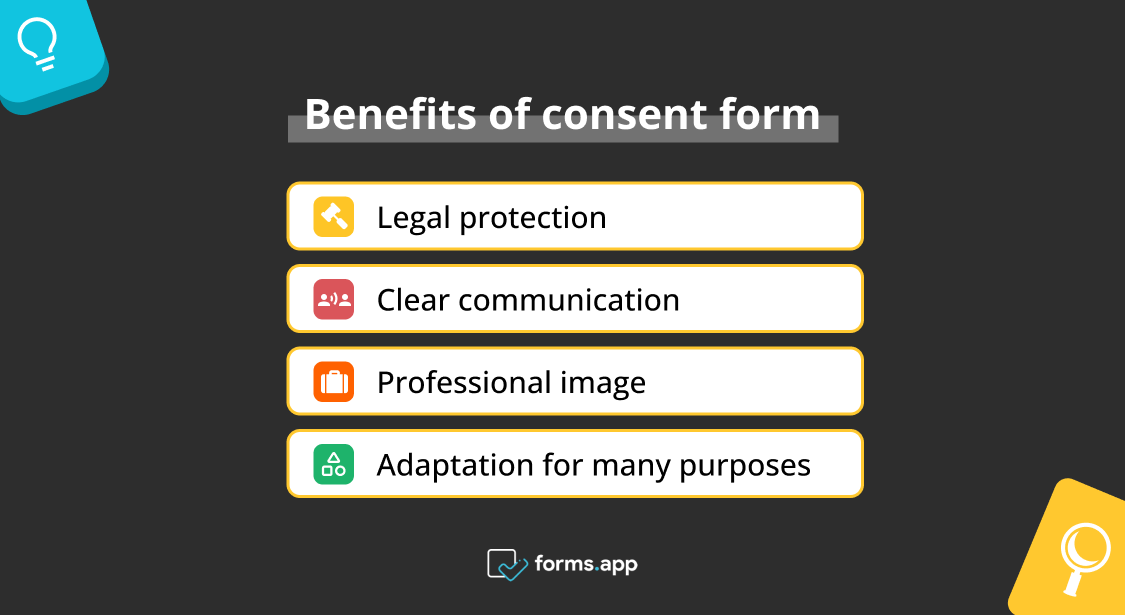
Pros of creating a consent form
Creating a consent form in Google Forms is a simple and efficient way to gather authorizations for various purposes. This service, which also has a Google Sheets integration, helps you to build many forms and surveys. In this tutorial, we'll walk you through the step-by-step process of setting up a consent form using Google Forms, ensuring a user-friendly experience for you and your respondents:
To begin, sign in to your Google Account, or if you don't have one, you can create an account quickly. After logging in, access the Google Forms tool and start a new form by clicking the “Blank” or plus sign.
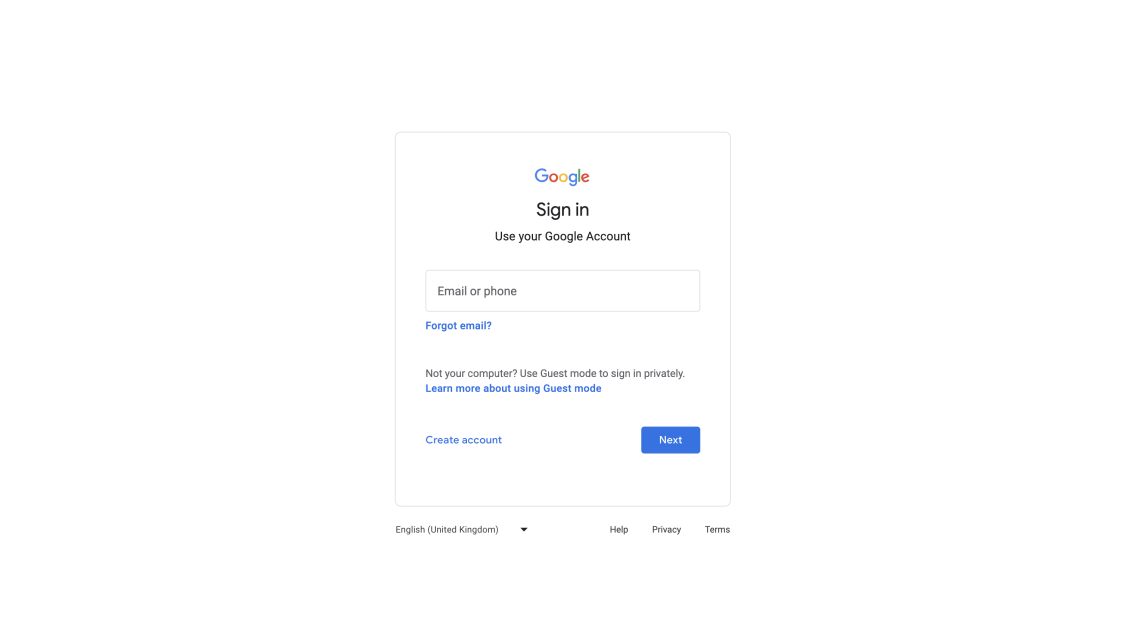
Log in to your Google account
Once you start creation, you can give your consent form a title. Optionally, write a description to explain the form's purpose or include some additional information.
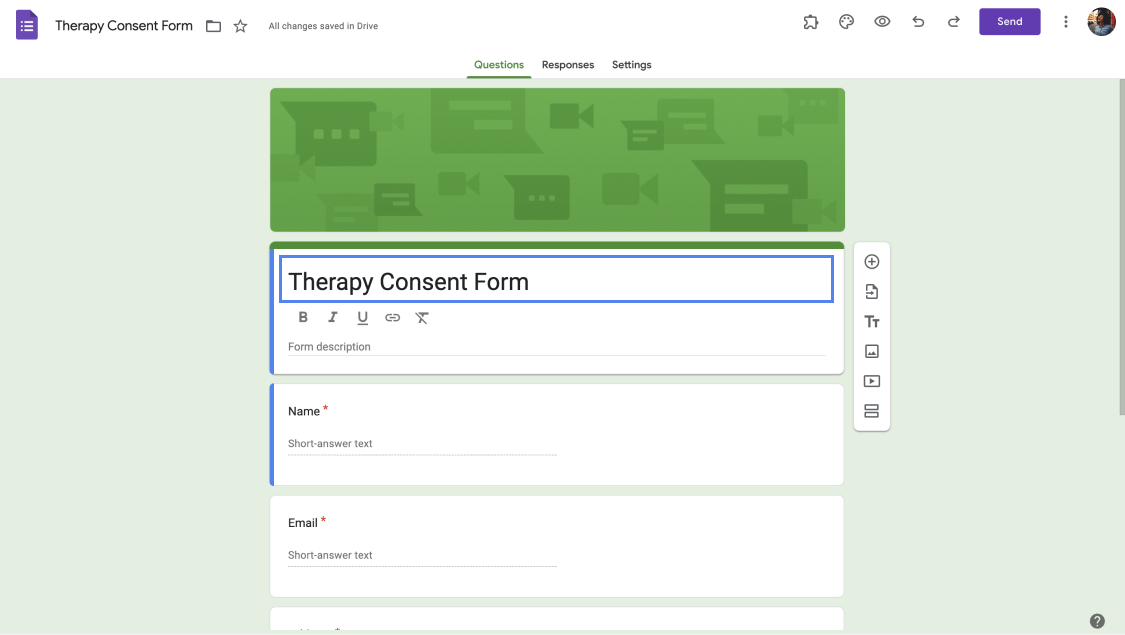
Title your form
Google Forms starts with a single-question field by default. By clicking on this field, you can change the default question to a consent-related one.
💡The consent question should be clear and directly related to the purpose of the form.
To ensure that respondents provide an answer to the consent question, don’t forget to toggle on the "Required" button.
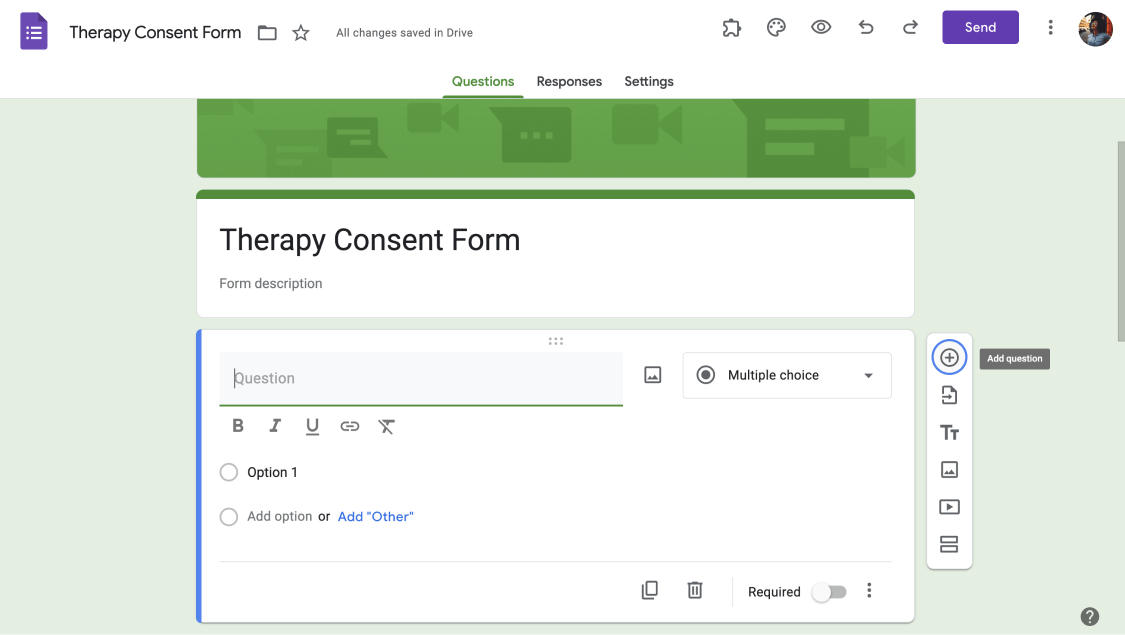
Add more questions
Once your consent question is ready, click on the sidebar next to it and select "Add title and description." You can enter details about what the respondent is consenting to in this text box.
Before completing the form, press the "Add section" button in the same sidebar to create a second section for those declining consent. Fill out information explaining that the user has chosen not to consent.
💡Making a particular form field for people who say "no" helps clarify things. If someone decides not to agree, they still get the proper information.
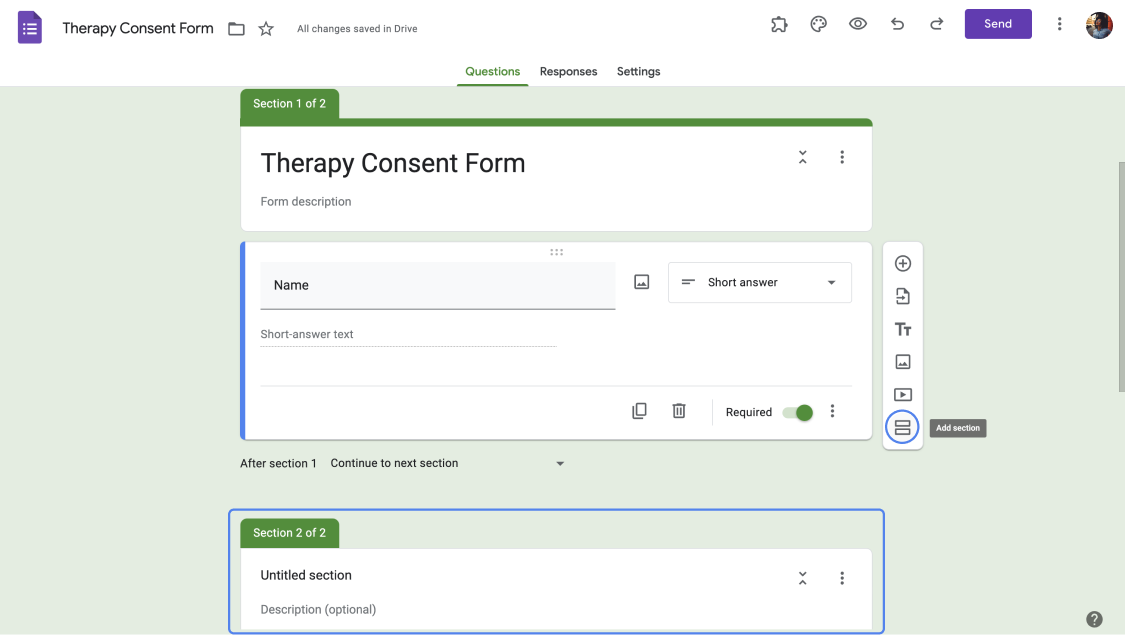
Add sections to your consent form
If you use multiple-choice questions, you might need a conditional format. To achieve this, you need to follow some steps. First, click the three vertical dots (⁞) in the lower-right corner of your question. Then press the Go to section based on answer button.
Direct yes responses to the Submit form page and no responses to the consent declined section. Select the dropdown menu for each question and choose the appropriate section to guide users.
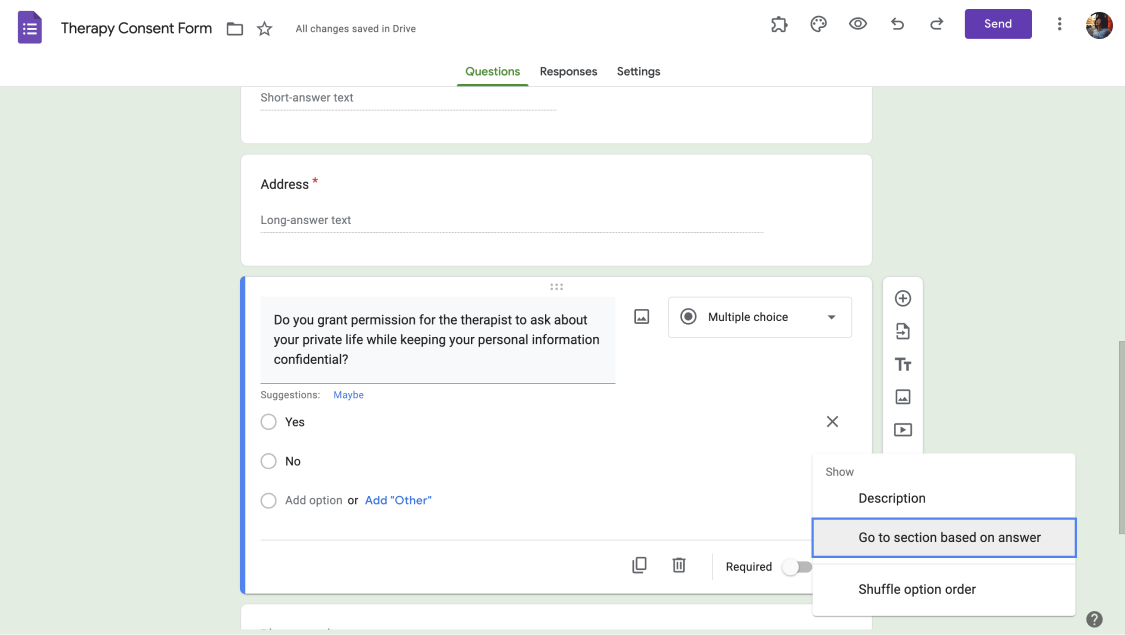
Use conditional format
While Google Forms is undoubtedly a valuable tool, it does have its limitations. If you want to streamline your process and speed things up, looking for ready templates is a logical step. You can discover an alternative solution with forms.app.
forms.app platform offers a range of features, including over 100 consent form templates, making it an ideal choice for your needs. Its user-friendly interface, drag-and-drop form builder, and AI features simplify the form creation process. Also, checking the guide to consent forms will help you learn more helpful information. Below, we will show you a step-by-step tutorial on creating a consent form with forms.app easily:
To begin, log in to forms.app, or if you dont have an account, you can effortlessly sign up for a free one using your email, Google account, or Apple account.
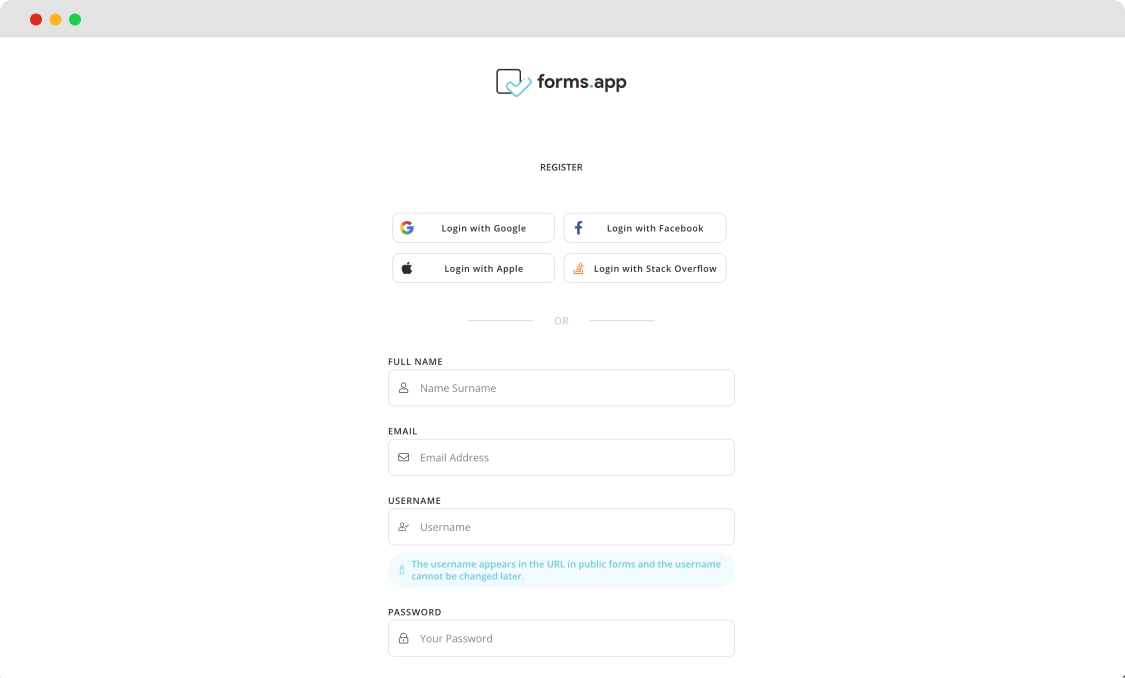
Creating a forms.app account
Choose a pre-designed consent form template on forms.app and initiate the process instantly by clicking the 'Use Template' button. Alternatively, you can begin from a blank page or, for a quicker option, allow AI to generate your form within seconds.
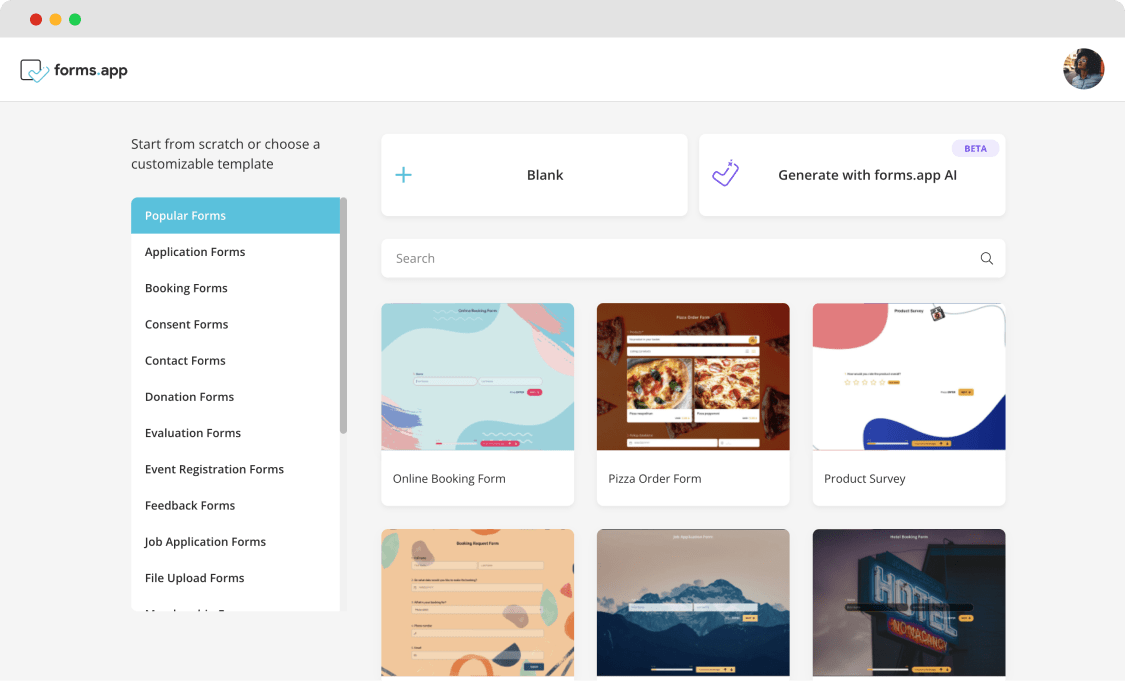
Choosing a starting option
After selecting a template or starting from scratch, customize your form by adding questions using the drag-and-drop feature. Write your questions based on the identified consent type. In addition to the questions, you can include another field for respondents to confirm their answers.
💡forms.app offers a new Rewrite with AI feature to enhance your questions effortlessly. You can adjust the language by pressing the 3-star icon next to each question.
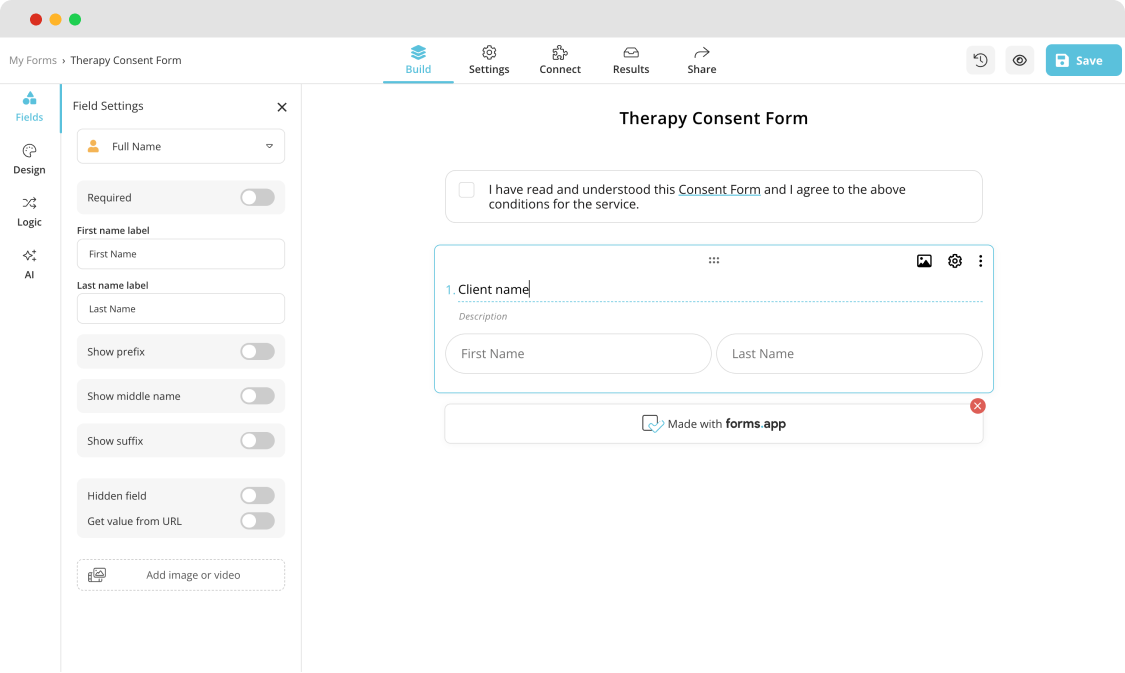
Add questions to your consent form
You can easily change, remove, or edit questions and form fields to align with your requirements. forms.app's intuitive customization features allow you to modify your consent form effortlessly.
In addition, you can gather digital signatures using forms.app. You can quickly do it by clicking the plus button and selecting the signature field in the right menu.
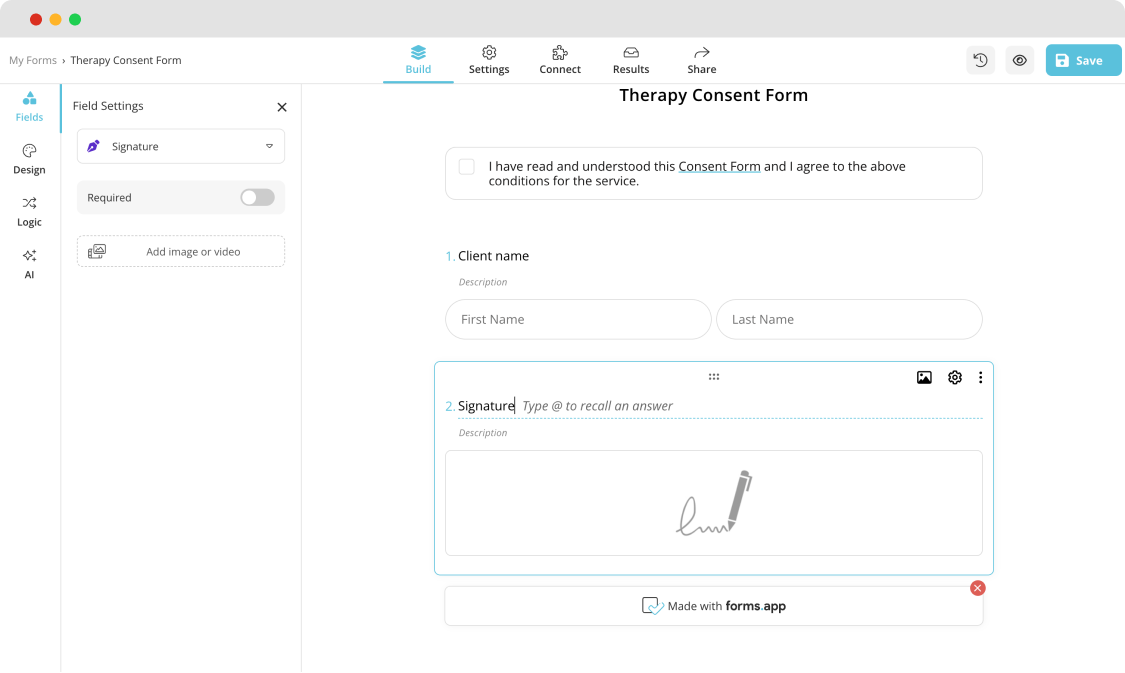
Customize the Legal & Consent field
After completing the creation of your consent form, you have the opportunity to integrate it into your website or share it directly through email. Explore options like Standard, Full-page, Chatbox layout, Side tab, Pop-up, and Slider for embedding. You can also share your form on social media or create a QR code for it.
Building a form on forms.app platform is easy, it offers great customization choices, templates, and helpful consent form tips for all your needs.
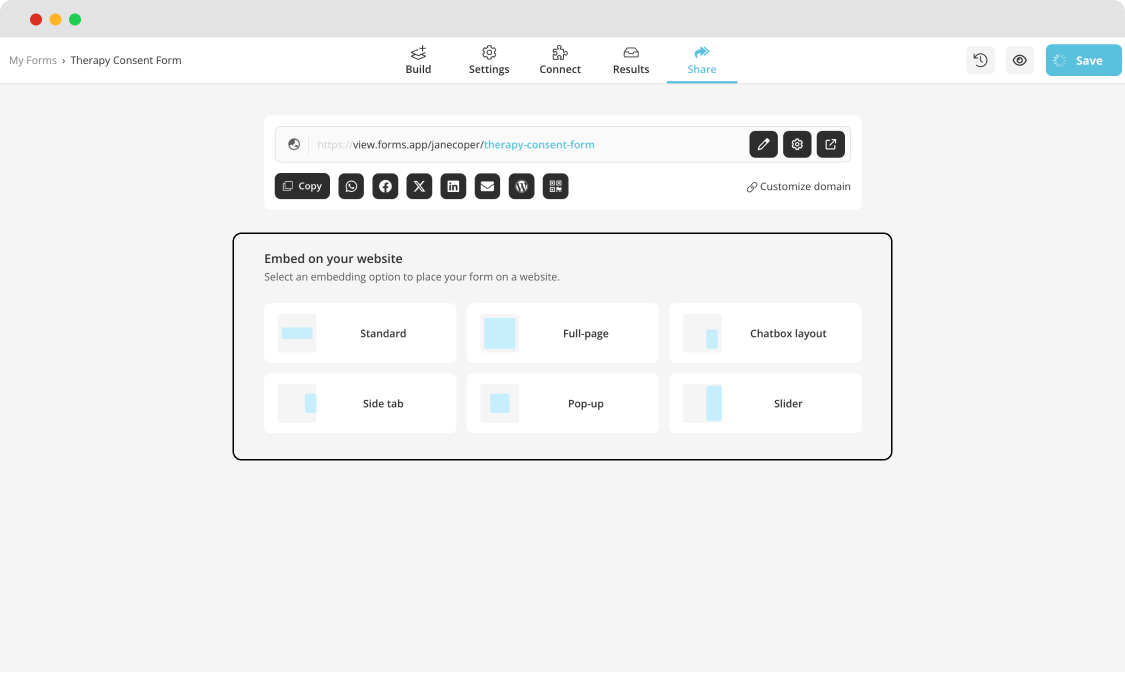
Choose an embedding option for your website
Crafting correct consent forms is essential for businesses and companies. It provides a legal foundation, improves communication, and enhances the firm's professional image. This article has shown you the step-by-step process of creating a consent form with Google Forms, highlighting these forms’ advantages and introducing a valuable alternative tool for a smoother form creation experience.
Yakup AhenpençeYakup is a content writer at forms.app. He is also a skilled translator. His hobbies include reading, learning about different languages, and different branches of sports. Yakup's expertise lies in translation, NoCode tools, and Google Forms.